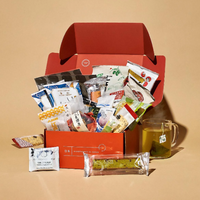How To Say I Love You In Japanese!
There are some words and phrases that don’t translate easily from one language to another. Love in Japanese is one of those concepts. The concept of love exists for everyone, but how to say I love you in Japanese is quite different than in English.
Romantic love is called ai (愛) in Japanese. However, compared to the West, it’s not as common to utter the phrase “I love you” (ai shiteru, ai shitemasu). Nowadays, perhaps due to globalism and the spread of Western media, Japanese parents say “I love you” (ai shiteru) to their children more than in the past, and some couples are doing the same. But for most, it’s too heavy or too awkward to say. Saying “I love you” in English instead of Japanese is a good work around for shy people.
Another word for love is koi (恋). Koi has a more passionate connotation than ai and is usually reserved for phrases like koibito (恋人), which translates to “lover” or “sweetheart.” There are other ways to convey love in Japanese that are subtler than ai and koi. So how does one typically say “I love you” in Japanese?

Ways to Say I Love You in Japanese
The verb suki (好き) can mean “like” or “love.” To say suki desu or suki da is a common way to convey “I love you” in Japanese. In English, “I like you” said in a new relationship can be taken as a platonic or a romantic statement. In Japanese, it has a more lovey dovey connotation, but can be said in a light and casual way too. Another variant of suki is the phrase “really like,” or daisuki (大好き) as a way to make the love more emphatic. To be honest, however, daisuki is usually reserved for objects or food, like puppies or sushi.
Love Through Food
Speaking of food, in Japanese culture it is customary to show one’s loyalty and appreciation by giving a gift of high-end Japanese snacks. Often, the packaging is as gorgeous and intricate as the product inside. And the act of giving a special gift picked out just for the recipient is itself a powerful message of love in Japanese.

For example, I love you in Japanese might mean sending someone this Handmade Candy Gift Box , which contains traditional little hard candies in enticing flavors such as mikan (Mandarin orange), kaki (persimmon), sakura (cherry blossom), and yuzu sake. Your loved one might swoon over a Fuubian Gift Box: Langue De Chat Cookies, which are delectable French-inspired butter cookies with fluffy fillings such as strawberry parfait, cream soda, sweet potato, and chocolate banana.
For those who prefer savory Japanese snacks, a gift of Tokyo Peasen Crackers is perfect. Peasen (a word combing “peanuts” with “senbei”) is a light, crispy rice cracker made from mochi rice and peanuts. This traditional collection includes flavors such as citrus yuzu kiri, shichimi pepper, bonito, and aosa seaweed. A special occasion gift that is sure to impress is the Hatsuho Seika Gift Box: Petit Rice Crackers. It is an artistic arrangement of elevated rice crackers in these varieties: ume (sour plum), ayu (Japanese sweetfish), maple, konoha (foliage-shaped), matsutake mushroom, sakura (cherry blossom), and black pepper soramame.
The Best Way to Say I Love You in Japanese
Love exists in all languages. Culturally, affection may not always be expressed the same way from country to country or generation to generation. Different people also have different love languages as part of their individual personality. How to say I love you in Japanese can be as simple as choosing a special gift from the heart, such as top-quality traditional Japanese snacks in aesthetically pleasing packages. In fact, forget language; food might be the best way to communicate the complicated notion of love.
For an abundant selection of Japanese snacks delivered to your door, check out bokksu.com. For a variety of other food products and recipes, head over to bokksugrocery.com, an online Asian grocery store.
By Megan Taylor Stephens
Want to learn more Japanese? Watch this video!
Author Bio











